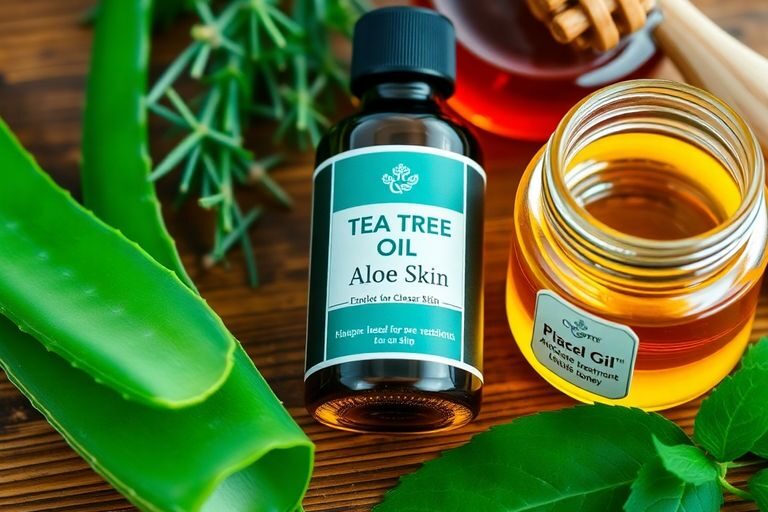Choosing the right night night cream can feel overwhelming with so many options available. Each skin type has its own unique needs, and understanding these can help you find the perfect product for your nightly skincare routine. This guide breaks down everything you need to know, from the benefits of night creams to how to select the right one for your skin type. Let’s get started on your journey to healthier, more radiant skin!
Key Takeaways
- Night night creams are thicker moisturisers designed to hydrate and repair skin overnight.
- Identifying your skin type is crucial for selecting the right night night cream.
- Oily skin benefits from lightweight, non-comedogenic formulas, while dry skin needs richer, more nourishing textures.
- Sensitive skin requires hypoallergenic and fragrance-free options to avoid irritation.
- Mature skin should look for creams with anti-ageing ingredients to improve firmness and elasticity.
Understanding Night Night Creams

What Is Night Night Cream?
Okay, so what is night night cream anyway? Basically, it’s a moisturiser you put on your face before bed. But it’s not just any moisturiser. Night creams are specially formulated to work while you sleep, when your skin is naturally repairing itself. Think of it as giving your skin a helping hand during its overnight shift. They’re usually richer and more nourishing than your day cream, designed to sink in slowly and deliver a concentrated dose of goodness.
Benefits of Using Night Night Cream
Why bother with a separate night cream? Well, there are quite a few good reasons:
- Intense Hydration: Night creams are packed with ingredients that draw moisture into the skin and lock it in, combating dryness that can occur overnight.
- Skin Repair: They often contain active ingredients that help repair damage from the day, like pollution and UV exposure.
- Anti-Ageing: Many night creams include ingredients that target fine lines, wrinkles, and other signs of ageing.
- Improved Skin Tone: Some night creams can help even out skin tone and reduce the appearance of dark spots.
- Boosted Collagen Production: Certain ingredients can stimulate collagen production, leading to firmer, more elastic skin.
Using a night cream regularly can make a noticeable difference in your skin’s overall health and appearance. It’s like giving your skin a mini spa treatment every night.
How Night Night Cream Works Overnight
So, how does this magic happen? Well, while you’re catching those Z’s, your skin is hard at work. Blood circulation increases, and skin cells regenerate faster than during the day. Night creams are designed to take advantage of this natural process. They deliver active ingredients that can penetrate more deeply and work more effectively while your skin is in repair mode. Plus, they provide a protective barrier that prevents moisture loss, ensuring your skin stays hydrated and plump all night long. Some even include nature’s retinol to help with sebum production.
Identifying Your Skin Type
Before you even think about slathering on a night cream, you’ve got to figure out what kind of skin you’re working with. It’s like trying to bake a cake without knowing if you’re using self-raising or plain flour – it’s probably not going to end well. I’ve seen so many people waste money on products that just aren’t right for them, and honestly, it’s easily avoidable with a little bit of knowledge.
Characteristics of Oily Skin
Oily skin is pretty easy to spot. The main giveaway is that lovely, shiny sheen that seems to appear no matter how much you blot. I know, it’s not always ideal, but there are upsides! Oily skin tends to age a bit slower because all that extra oil keeps it moisturised (sort of). Here’s what to look for:
- A noticeable shine, especially on your forehead, nose, and chin (the T-zone).
- Enlarged pores.
- A tendency to develop blackheads, spots, and other blemishes. Blemish-prone skin won’t fare well with heavy night creams.
- Makeup that seems to ‘slide off’ your face during the day.
Understanding Dry Skin
Dry skin is basically the opposite of oily skin. Instead of being shiny, it often feels tight and can look flaky. It’s like your skin is constantly thirsty, and no amount of moisturiser seems to quench it. I find that dry skin can be particularly annoying in winter when the cold air just sucks all the moisture out. Here’s what to watch out for:
- A feeling of tightness, especially after washing.
- Flakiness or scaling.
- Itchiness.
- A dull complexion.
- More visible lines and wrinkles.
Recognising Sensitive Skin
Sensitive skin is a bit of a pain, to be honest. It’s basically skin that’s easily irritated by, well, pretty much anything. I’ve had clients who react to everything from certain fabrics to specific ingredients in skincare. It can be tricky to manage, but definitely manageable. Here are some signs:
- Redness.
- Itching.
- Burning or stinging sensations.
- Dry patches.
- Reactions to fragrances or certain ingredients.
Identifying Combination Skin
Combination skin is exactly what it sounds like – a mix of oily and dry areas. Usually, you’ll find the T-zone (forehead, nose, and chin) is oily, while the cheeks are dry. It’s like your face is having an identity crisis! I think combination skin is one of the most common skin types, and it can be a bit of a challenge to treat because you need to address both the oily and dry areas. Here’s how to spot it:
- Oily T-zone (forehead, nose, and chin).
- Dry or normal cheeks.
- Pores that are more visible on the nose than on the rest of the face.
- Different skincare needs for different areas of your face.
Knowing your skin type is half the battle. Once you’ve figured that out, choosing the right night cream becomes so much easier. It’s all about understanding what your skin needs and finding products that cater to those specific needs. Don’t just grab the first cream you see – take the time to assess your skin and make an informed decision.
Choosing Night Night Cream for Oily Skin
If you’ve got oily skin, finding the right night cream can feel like a bit of a minefield. You want something that hydrates, but without turning your face into an oil slick by morning. I’ve been there, and trust me, it’s all about finding the right balance. Here’s what I’ve learned about choosing the perfect night cream for oily skin.
Lightweight Formulations
The key here is to go light. Heavy, rich creams are a no-go, as they’ll likely clog your pores and lead to breakouts. Instead, look for gel-based or lightweight lotion formulations. These are designed to provide hydration without adding excess oil. Think of it like this: you want a drink of water, not a milkshake, for your skin.
Non-Comedogenic Ingredients
This is skincare lingo for "won’t clog your pores". Always check the label for the term "non-comedogenic". It’s your best friend when you’re battling oily skin.
Key Ingredients to Look For
When it comes to ingredients, there are a few superstars that can really help oily skin:
- Hyaluronic acid: This is a humectant, meaning it draws moisture from the air into your skin. It’s super hydrating but doesn’t add any oil.
- Niacinamide: This ingredient can help regulate oil production, reduce redness, and minimise the appearance of pores. It’s a real all-rounder.
- Salicylic acid: A beta-hydroxy acid (BHA) that exfoliates inside the pores, helping to prevent breakouts. It’s a great addition if you’re prone to spots.
- Aloe vera: A natural ingredient that soothes and hydrates without being greasy. face wash with aloe vera is a great choice.
Avoid creams with heavy oils like coconut oil or shea butter, as these can be too rich for oily skin and lead to clogged pores. Also, ensure that your night cream is free from fragrance, mineral oil, parabens, and sulphates, as these ingredients are not only harmful to your skin but also a major cause of irritated, itchy, and acne skin.
Ultimately, finding the right night cream for oily skin is about experimentation. What works for one person might not work for another. But by focusing on lightweight, non-comedogenic formulations and key ingredients like hyaluronic acid and niacinamide, you’ll be well on your way to finding your perfect match. Remember to always cleanse your skin before applying any product.
Selecting Night Night Cream for Dry Skin
If you’ve got dry skin, finding the right night cream is super important. It’s all about giving your skin the moisture it desperately needs while you sleep. I’ve tried loads of different creams over the years, and I’ve learned a thing or two about what works. Let’s get into it.
Rich and Nourishing Textures
When it comes to dry skin, texture is key. You want something that feels properly rich and substantial. Think of it like a comforting blanket for your face. I always go for creams that have a thick, almost buttery feel. Lightweight lotions just don’t cut it – they tend to sink in too quickly and leave my skin feeling tight again within a few hours.
Hydrating Ingredients
Ingredients are where the magic happens. Here’s what I look for:
- Hyaluronic acid: This is a hydration hero. It draws moisture from the air and locks it into your skin. It’s a must-have.
- Ceramides: These help to repair your skin’s natural barrier, preventing moisture loss. Think of them as the mortar that holds your skin cells together.
- Shea butter: A classic for a reason. It’s incredibly nourishing and helps to soften dry patches. I love how soothing it feels.
- Natural oils: Ingredients like squalane, jojoba, or argan oil can make a big difference. They provide essential fatty acids and help to keep your skin supple.
I’ve found that creams with a combination of these ingredients work best. It’s like a team effort to keep my skin hydrated all night long.
Avoiding Irritating Components
Dry skin can often be sensitive skin, so it’s important to be careful about what you’re putting on your face. I always steer clear of:
- Alcohol: This can dry out your skin even further. It’s often listed as alcohol denat on the ingredients list.
- Fragrances: These can be irritating, especially if you have sensitive skin. Look for fragrance-free options.
- Harsh exfoliants: Ingredients like AHAs or BHAs can be too strong for dry skin, especially in a night cream. Save those for a separate treatment, and use them sparingly.
Choosing the right night cream for dry skin can be a bit of trial and error, but with these tips, you’ll be well on your way to finding your perfect match. Sweet dreams and hydrated skin!
Finding the Right Night Night Cream for Sensitive Skin
Dealing with sensitive skin can be a real challenge, especially when it comes to finding the right skincare. It feels like everything irritates it, right? Night night creams are no exception. But don’t worry, I’ve been there, and I’ve got some tips to help you find the perfect cream that will soothe your skin while you sleep.
Hypoallergenic Options
When you’ve got sensitive skin, "hypoallergenic" is your new favourite word. These creams are formulated to minimise the risk of allergic reactions. They typically exclude common irritants, but it’s still worth checking the ingredient list. Look for products that have been tested and approved by dermatologists. I always do a patch test before slathering anything new all over my face – just a small amount on your inner arm for a day or two will tell you if it’s a no-go.
Fragrance-Free Formulations
Fragrance is a HUGE trigger for sensitive skin. Seriously, it’s often the culprit behind redness, itching, and general discomfort.
- Fragrance-free doesn’t always mean unscented, though. Some products might use masking fragrances to cover up the natural smell of the ingredients.
- Read labels carefully and look for products that explicitly state "fragrance-free".
- I’ve found that sticking to brands known for sensitive skin La Roche-Posay often helps, as they tend to avoid unnecessary additives.
Soothing Ingredients to Consider
Certain ingredients can work wonders for calming irritated skin. Here are a few of my go-to’s:
- Aloe vera: This is a classic for a reason. It’s incredibly soothing and helps to reduce inflammation.
- Hyaluronic acid: Keeps your skin hydrated without being heavy or greasy.
- Niacinamide: Helps to reduce redness and improve the skin’s barrier function.
I always look for creams with minimal ingredients. The fewer ingredients, the less chance of something irritating my skin. Simple is often best when it comes to sensitive skin.
Night Night Cream for Mature Skin
As we get older, our skin changes, and what worked in our 20s just doesn’t cut it anymore. I’ve found that night creams become even more important as we mature, helping to combat the signs of ageing while we sleep. It’s all about finding the right ingredients and formulations to support your skin’s needs.
Anti-Ageing Ingredients
When it comes to mature skin, anti-ageing ingredients are your best friends. Look for creams packed with retinol, peptides, and antioxidants. These powerhouses work to reduce the appearance of fine lines, wrinkles, and age spots.
- Retinol: A derivative of vitamin A, retinol helps to boost collagen production and improve skin texture. It can be a bit strong, so start with a low concentration and gradually increase it as your skin gets used to it.
- Peptides: These are amino acids that help to build collagen and elastin, which are essential for maintaining skin firmness and elasticity.
- Antioxidants: Ingredients like vitamin C and vitamin E protect the skin from free radical damage, which can contribute to premature ageing.
Restorative Properties
Night creams for mature skin should also focus on restoring the skin’s natural barrier and hydration levels. As we age, our skin tends to become drier and more fragile, so it’s important to replenish lost moisture and support the skin’s ability to retain it. Consider Caudalie Resveratrol-Lift Firming Night Cream for its restorative properties.
- Hyaluronic acid: This ingredient is a humectant, meaning it draws moisture from the air into the skin. It can hold up to 1000 times its weight in water, making it an excellent hydrator.
- Ceramides: These are lipids that help to form the skin’s protective barrier. They help to prevent moisture loss and protect the skin from environmental damage.
- Niacinamide: Also known as vitamin B3, niacinamide helps to improve skin tone, reduce inflammation, and strengthen the skin’s barrier function.
Choosing Creams for Firmness and Elasticity
One of the biggest concerns for mature skin is the loss of firmness and elasticity. To combat this, look for night creams that contain ingredients specifically designed to boost collagen production and improve skin structure.
I’ve found that creams with ingredients like peptides and growth factors can make a noticeable difference in the firmness and elasticity of my skin. It’s all about finding products that support the skin’s natural ability to regenerate and repair itself overnight.
Here’s a quick guide to ingredients that promote firmness:
| Ingredient | Benefit |
|---|---|
| Matrixyl | Stimulates collagen synthesis, reducing wrinkle depth. |
| Copper Peptides | Promotes collagen and elastin production, improving skin elasticity. |
| Vitamin C | Antioxidant that also aids in collagen synthesis. |
Common Ingredients in Night Night Creams
Active Ingredients to Look For
When I’m choosing a night night cream, I always have a peek at the ingredients list. It’s like reading the back of a cereal box – you want to know what you’re putting on your face! The best night creams are packed with ingredients that work while you sleep. Here are a few of my favourites:
- Retinols: These are vitamin A derivatives and are fantastic for reducing fine lines, wrinkles, and dark spots. They also help to brighten your skin. I think of them as the all-rounders of the anti-ageing world.
- Hyaluronic Acid: This stuff is a moisture magnet! It helps your skin retain its natural moisture, which is super important for keeping those fine lines at bay. It’s like giving your skin a big drink of water.
- Vitamin E: A great antioxidant that fights free radicals and helps rejuvenate your skin. It’s like a shield against environmental damage.
- Peptides: These little guys help to boost collagen production, which keeps your skin firm and elastic. Think of them as the building blocks of youthful skin.
- AHAs/BHAs: Alpha-hydroxy acids (AHAs) and beta-hydroxy acids (BHAs) gently exfoliate your skin, helping your night cream penetrate deeper. They’re like the little helpers that clear the way for the other ingredients to do their job.
Ingredients to Avoid
Just as important as knowing what to look for is knowing what to avoid. Some ingredients can irritate your skin or just aren’t that beneficial. Here’s my list of ingredients I try to steer clear of:
- Parabens: Some people prefer to avoid these preservatives, although the science is still out on how harmful they are.
- Synthetic Fragrances: These can be a big no-no, especially if you have sensitive skin. They can cause irritation and allergic reactions. I always opt for fragrance-free options.
- Mineral Oil: This can clog pores for some people, leading to breakouts. I prefer lighter, non-comedogenic oils.
- Sulphates: These can strip your skin of its natural oils, leaving it dry and irritated. I try to avoid them in all my skincare products.
- Phthalates: Another ingredient some people choose to avoid due to potential health concerns.
Understanding Labels and Claims
Navigating the world of skincare labels can feel like learning a new language. Here’s what I’ve learned about understanding those labels and claims:
- Non-Comedogenic: This means the product shouldn’t clog your pores, which is great if you’re prone to breakouts.
- Hypoallergenic: This means the product is less likely to cause an allergic reaction. It’s a good choice if you have sensitive skin.
Tips for Applying Night Night Cream Effectively

Alright, so you’ve got your perfect night cream – now what? Just slapping it on isn’t going to cut it. Let’s talk about how to get the most out of your night cream so you wake up with that glow we’re all after.
Best Application Techniques
Okay, first things first: cleanliness is key. You wouldn’t build a house on a dirty foundation, would you? Same goes for your face. Start with a gentle cleanser to get rid of any makeup, dirt, and grime from the day. Pat your skin dry – don’t rub! – and then you’re ready to go.
Here’s my go-to method:
- Dot it around: Use your fingertips to apply small dots of night cream to your forehead, cheeks, chin, and neck. A little goes a long way, so don’t overdo it.
- Gently massage: Using upward and outward motions, gently massage the cream into your skin. This helps with absorption and also stimulates blood circulation.
- Don’t forget your neck: Your neck needs love too! Use the same upward motions to apply the cream to your neck and décolletage.
- Avoid the eye area: The skin around your eyes is super delicate, so use a separate eye cream specifically designed for that area. Night creams can be too heavy and cause milia (those annoying little white bumps).
When to Apply Night Night Cream
Timing is everything! I always apply my night cream about 30 minutes before I hit the hay. This gives the cream enough time to fully absorb into my skin, so it doesn’t just end up all over my pillow. Plus, your skin regenerates faster at night, so applying your cream before bed allows it to work its magic while you sleep.
Creating a Nighttime Skincare Routine
Think of your nighttime skincare routine as a ritual – a way to wind down and pamper yourself before bed. Here’s what mine looks like:
- Cleanse: Remove makeup and wash away the day’s impurities.
- Tone: Balances your skin’s pH levels.
- Serum: Apply any targeted serums, like a hydrating serum or an anti-ageing serum.
- Eye Cream: Gently pat eye cream around your eye area.
- Night Cream: Seal in all the goodness with your night cream.
Consistency is key. Sticking to a regular nighttime skincare routine will make a huge difference in the long run. It’s like brushing your teeth – you wouldn’t skip that, would you? Your skin deserves the same level of care.
And that’s it! With these tips, you’ll be well on your way to waking up with healthy, glowing skin every morning.
Final Thoughts on Night Cream Selection
Choosing the right night cream for your skin type is key to achieving that healthy glow we all want. It’s not just about slapping on any cream before bed; it’s about finding a product that works with your skin’s unique needs. Whether you’ve got dry, oily, sensitive, or mature skin, there’s a perfect match out there for you. Remember to look for ingredients that cater to your specific concerns and always apply your cream after cleansing for the best results. With the right night cream, you can wake up feeling refreshed and your skin looking revitalised, ready to take on the day ahead.
Frequently Asked Questions
What is a night cream and why should I use it?
A night cream is a thicker moisturiser designed to hydrate and nourish your skin while you sleep. It helps improve your skin’s texture and appearance, making it look healthier and younger.
How do I know which night cream is best for my skin type?
To find the right night cream, first identify your skin type: oily, dry, sensitive, or combination. Each type needs different ingredients, so choose a cream that matches your skin’s needs.
Can I use the same night cream for both oily and dry skin?
No, you should not use the same night cream for both skin types. Oily skin needs lighter, non-greasy formulas, while dry skin benefits from richer, more hydrating creams.
What ingredients should I look for in a night cream?
Look for ingredients that suit your skin type. For dry skin, choose creams with hyaluronic acid or shea butter. For oily skin, look for gel-based creams with non-comedogenic ingredients.
How often should I apply night cream?
You should apply night cream every night as part of your bedtime skincare routine to keep your skin hydrated and healthy.
Is it necessary to use a night cream if I already use a day moisturiser?
Yes, a night cream is important because it provides extra hydration and helps repair your skin overnight, which a day moisturiser may not do.





